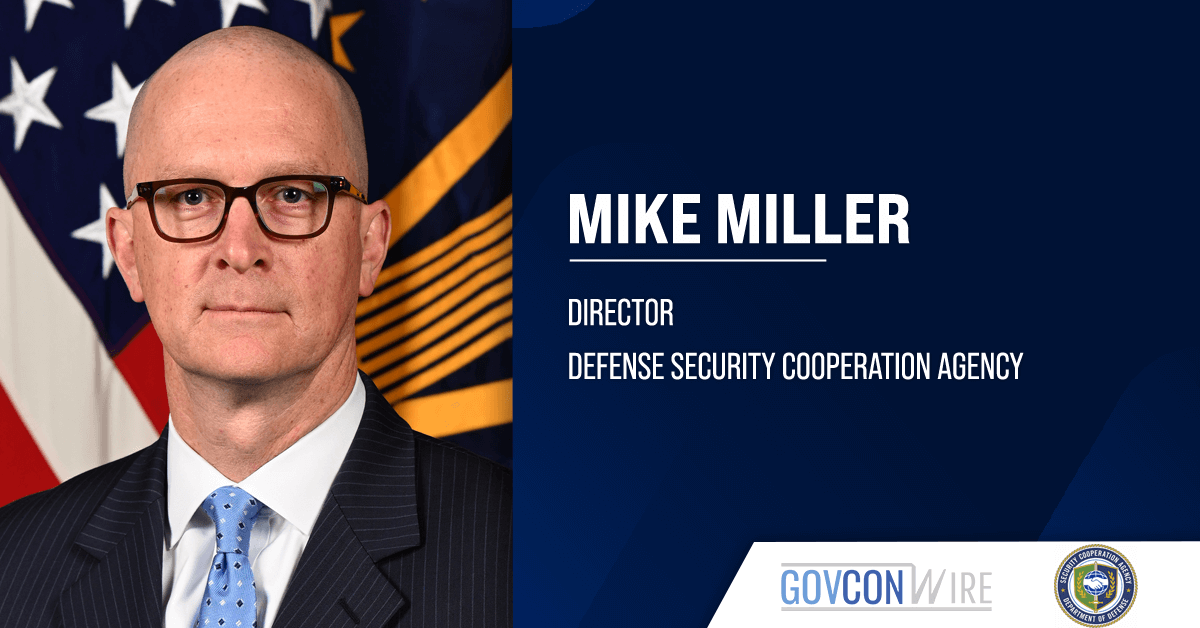The Defense Security Cooperation Agency has seen a drastic increase in foreign military sales in recent years, fueled by the increasingly complex geopolitical landscape. According to DSCA Director Mike Miller, the agency has seen an “unprecedented surge” in demand for FMS.
In a keynote address at the Potomac Officers Club’s GovCon International Summit on Oct. 10, Miller gave an overview of the agency’s FMS initiatives and the recent implementation of strategic programs.
Miller described FMS as a vital component in bolstering global defense.
“Foreign military sales are a key tool of U.S. national security and foreign policy, and we play an indispensable role in administering this program,” Miller said.
The recent surge of foreign military challenges has only increased the need for security cooperation between international allies and partners. As a result, the DSCA has seen a rise in FMS investments throughout recent years.
“We executed an unprecedentedly high number of foreign military sales, to the tune of almost $81 billion that went through the U.S. foreign military sales system, including $62.5 billion in sales that were financed by our foreign partners — the rest being financed by DOD and State Department security assistance authorities,” Miller stated. “What that meant for us at the DSCA in terms of oversight implementation was nearly 16,000 separate FMS cases under work with an open case value of three-quarters of a trillion dollars.”
Miller continued to speak on recent initiatives, including the DSCA’s alignment with the National Defense Strategy in part of the agency’s Strategic Plan for 2025. With this plan, Miller said the DSCA aims to “break down barriers in cooperation with partners and allies, and further incorporate ally partner perspectives, competencies and advantages at every stage of defense planning in order to include and better address their most pressing requirements.”
“That in turn, advances our defense and foreign policy interests, which are increasingly important this year in the Great Power Competition,” he added.
The DSCA has recently implemented FMS reforms to improve processes and deliver capabilities to partners and allies.
“How we bring additional technology and options forward to our partners — there’s a range of exciting work there, it’s diffuse,” Miller emphasized. “You’ve got things going out to the [Defense Innovation Unit], you’ve got things going out to combat commands, you’ve got things going out to the industry. You’ve got various programs of incentivization to bring forward new technologies into the DOD and hopefully by extension to our partners. So that’s very exciting.”
Miller also discussed recent advancements in AUKUS, a trilateral security partnership between Australia, the United Kingdom and the United States.
“With AUKUS, we’ve set an ambitious mission to strengthen the industrial capacities of our three democracies. This represents a generational opportunity to enhance capabilities, improve interoperability and strengthen integrated deterrence to grow and maintain a free and open Indo-Pacific,” Miller said.
You can learn more about how the U.S. is working alongside global allies to face national security challenges ahead at the 2024 Homeland Security Summit on Nov. 13. Secure your spot at the 2024 Homeland Security Summit to gain insights from the leading defense researchers at the event.



